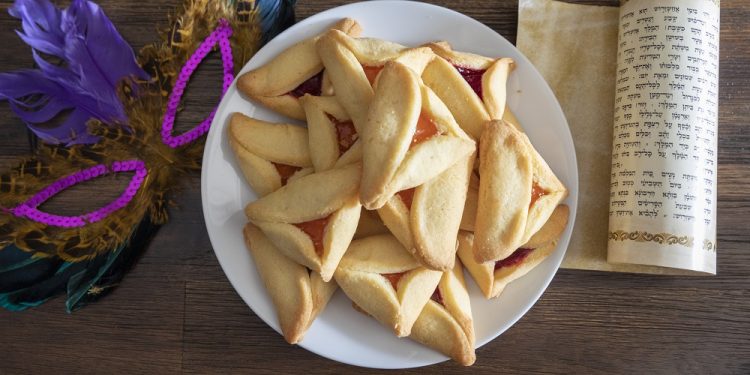
Purim
Although Purim was traditionally viewed as less significant than a major holiday, today it has been elevated to a higher status because of the unique Jewish historical experience—much in the same way that Hanukkah has been elevated to a larger status than was originally intended. It is a holiday celebrated on the 14th day of Adar and is a commemoration of a story from the Book of Esther, in which the Jewish people are delivered from tyranny and oppression.
History
The story is set in Persia, today better known as Iran, and begins with King Ahashverosh holding an elaborate banquet in the capital city of Shushan. At this banquet, the king orders his wife, Queen Vashti, to dance before all the king’s guests. When she refuses, King Ahashverosh strips her of her royal position and has her executed.
The king then begins the process of looking for a new queen and holds a special pageant in which all the maidens of the empire can apply for the newly vacated position. When a Jewish man named Mordechai hears of the pageant, he encourages his cousin Esther to enter the contest. She wins the competition but does not reveal to the king that she is of Jewish descent.
One day, while the king’s adviser—a man named Haman—was parading down the streets of Shushan ordering everyone to bow down to him, he passed Mordechai and ordered him to bow. When Mordechai refused (due to the fact that Jews bow down to no one except God), Haman realized that he was Jewish and decided to exterminate all the Jews in Persia. He then convinced the king to go along with his plan.
Haman and King Ahashverosh decided to hold a special kind of lottery—called a purim—in which lots were cast to decide on which day to kill the Jews. After the date is chosen, the thirteenth day of Adar, Haman proceeds with his plan.
However, the Jews are saved when Esther reveals to the king that she is Jewish herself, thereby saving Mordechai and all the Jews. As a result, the king orders Haman to be hanged, and Mordechai is given his estates and position.
Customs and Observances
There are four observances, also called mitzvot, observed on this day. Below are these four observances:
Public Reading of the Book of Esther—Participants often gather to listen to a reading of the Book of Esther. This usually takes place in the evening and then again the following morning.
Giving Food Gifts—The Book of Esther prescribes giving out gifts to people, so participants usually distribute parcels of food called mishloach manot.
Giving to the Poor—Another tradition from the Book of Esther is giving charitable donations to the poor. This is called matanot la’evyonim.
Seudat Purim—This is a festive meal that is usually served in the afternoon of Purim. Copious amounts of wine are typically consumed on this day.








